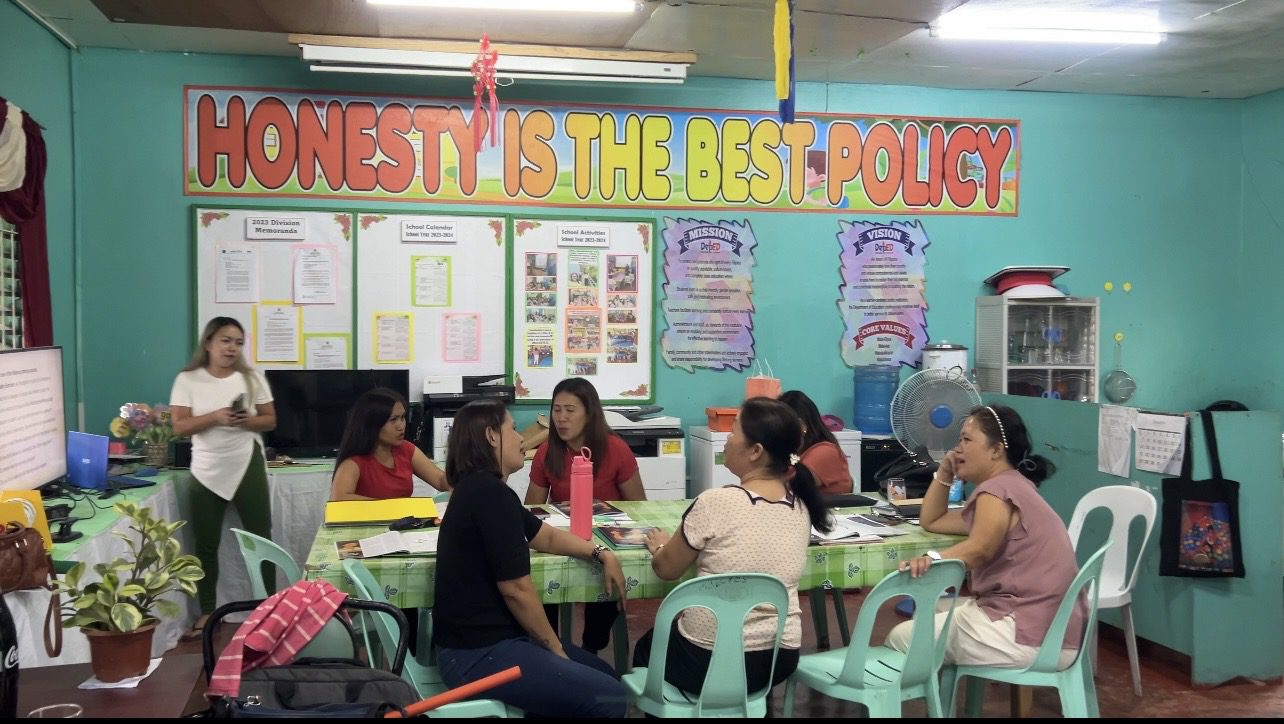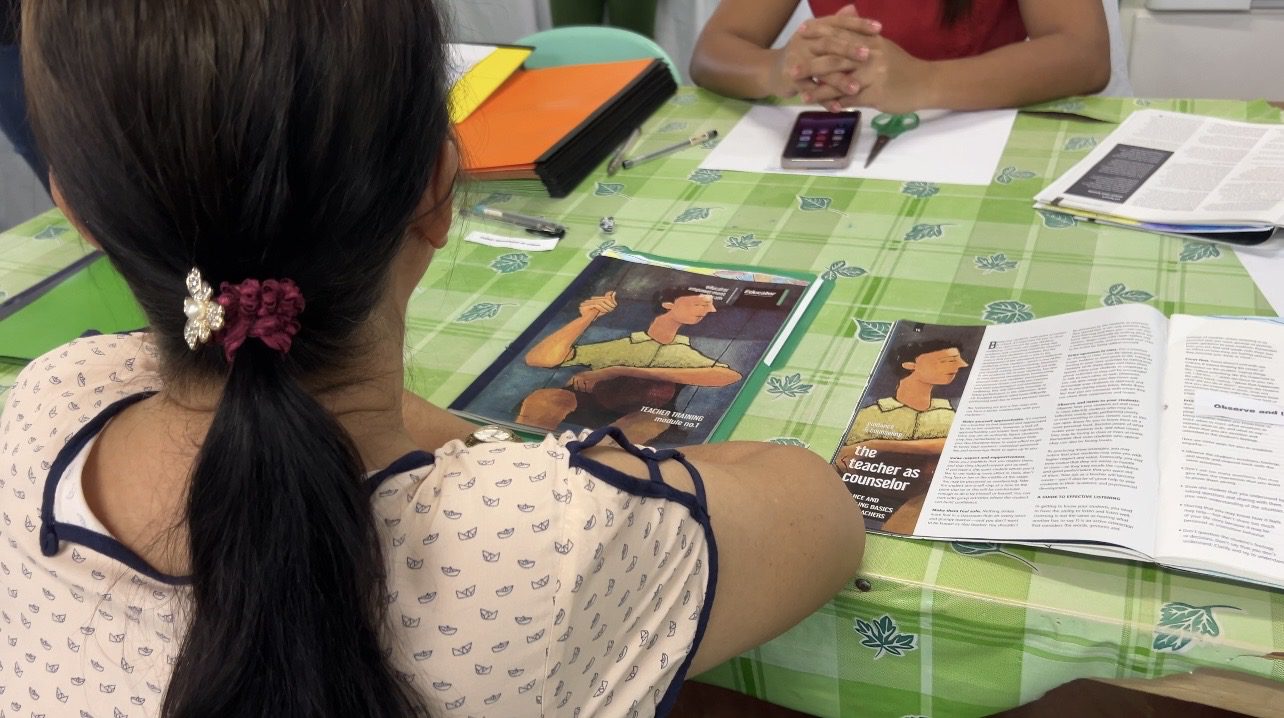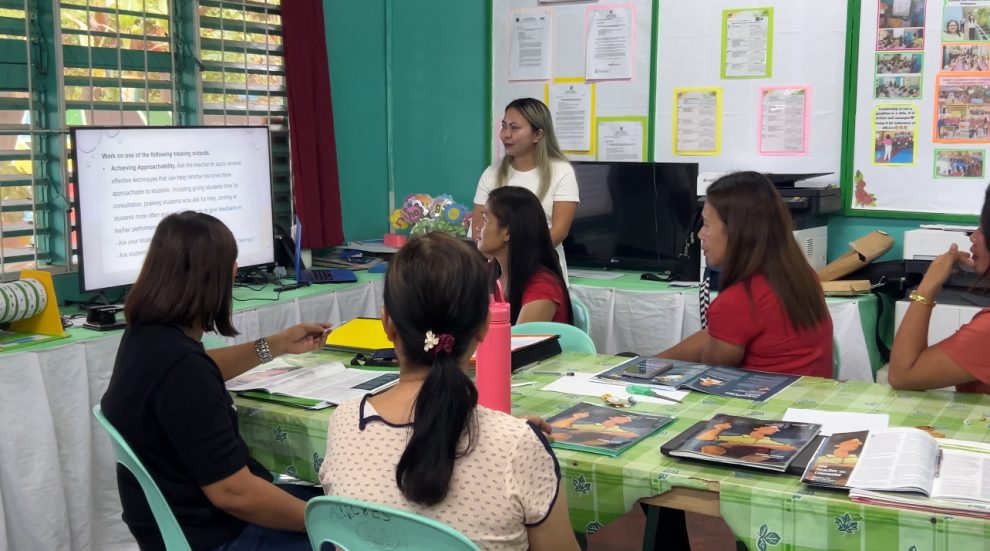Teachers assume a great responsibility at the forefront of education.
As advocates of growth and learning, their influence extends far beyond the confines of the classroom, leaving an indelible mark on society, touching hearts and the lives of the children they teach.
With the challenges and the glaring spotlight on the current learning crisis, teachers are left in despair. Balancing both the quantitative and qualitative aspects of teaching, they bear a load of responsibilities. The challenge now hinges on empowering our teachers so they can effectively serve our learners.
In response to this pressing need for support, initiatives, and innovative strategies are now underway across public schools in the Philippines. The Department of Education (DepEd) has one valuable initiative that responds to this need – the Learning Action Cell (LAC) Sessions. This is a valuable strategy for teachers to collaborate in solving problems they encounter and collectively create interventions or innovations to solve them.
To maximize this learning and development initiative of DepEd, the Ramon Aboitiz Foundation, Inc. (RAFI), in its commitment to nurture thriving and empowered learning environments, has joined hands with DepEd and Alchemy Education to introduce the EmpowerEd project.
This initiative equips teachers with six self-paced modules which aims to support their LAC sessions covering a range of topics including advanced teaching methodologies, teacher well-being, community engagement, health and safety, and environmental awareness.
Launched in November 2023, EmpowerED seeks to emphasize the holistic development of educators. Recognizing that teaching is as much about nurturing the heart as it is about cultivating the mind, the program provides teachers with the tools and support they need to prioritize their own well-being and thrive both personally and professionally.

Teacher development
Recent data from the World Bank’s comprehensive report also sheds light on the challenges faced by educators in the Philippines and other East Asian and Pacific countries. The report mentions a critical gap in in-service training programs for teachers, highlighting the absence of essential elements vital for effective teacher development. These crucial components include a robust focus on content knowledge, opportunities for collaborative learning among peers, sustained support through follow-up sessions, and tangible career incentives to motivate and reward educators for their dedication.
As the School Head of Tugbungan Elementary School in Consolacion Cebu, Aladin Cabanig emphasizes the crucial role of love and understanding from teachers in sustaining and elevating a developmental program. He believes that by instilling the program’s values within the hearts of educators, they will naturally invest in and enhance their teaching practices.
From the outset, Aladin strategically integrated the program into their ‘Catch Up’ Fridays sessions, not only focusing on student enrichment but also providing a platform for teacher development. Recognizing his responsibility as a school leader, he prioritizes ongoing support, motivation, and the creation of opportunities for his teaching staff.
Highlighting the pivotal role of teachers as the cornerstone of learning, Aladin passionately articulates his aspirations for the program: “Our vision is to cultivate authentic, resilient learners equipped with the skills necessary to navigate the global challenges of the 21st century. While we acknowledge existing challenges, such as resource limitations, we recognize that the starting point must always be the educators themselves—the frontline ambassadors of knowledge and inspiration. How teachers implement and deliver their lessons directly impacts student outcomes.”
Aladin emphasizes that the program modules provide a crucial opportunity for educators to reassess and adapt to the evolving educational landscape, particularly in response to the unique learning styles of today’s youth. By assigning facilitators for each session, he observes a commendable dedication among teachers to foster interactive and engaging learning environments, setting a precedent for their instructional practices with students. Furthermore, those less familiar with technology receive invaluable support and guidance from both IT professionals and peers, fostering a sense of camaraderie and collaboration within the school community.
He underscores that cultivating quality learners is challenging, but these sessions serve not to burden teachers further but to empower them to continually enhance their skills and professional growth.
Advocates for learning and children
Embracing learning and improvement that goes beyond self is inherent to the role of educators. For LAC Supervisor, Janice G. Alejado, the EmpowerED Program came right in time to refresh and restart their commitment for teaching after the temporary pause of face-to-face teaching during the pandemic. As they go through the program, she realized that their participation in the program transcends her personal goals of improvement but also helps produce equipped and learned students.
“We’re grateful to have been selected for this program, as it presents a valuable opportunity for our school’s advancement, particularly for our teachers. Initially, there was some apprehension, but as we delved into the program’s objectives and participated in the modules, the learning sessions evolved into opportunities for us to reflect on our practices and share insights on how to enhance our approach in various situations. Embracing the program fostered a collaborative environment among us teachers, enabling us to support and uplift one another in our journey towards improvement,” Janice explained.
In a shared sentiment among her colleagues, they frequently remarked on the differences between students of the past and present. However, as they progressed through the module, they realized that these perceived disparities could be attributed to their lapses in implementing effective classroom management strategies and adapting to evolving student needs.
“Nindot kaayo ang program because it focuses on the relationship between the student and the teacher as well as our colleagues and the community. Even just in the beginning of the module, I already feel a change in the learning environment. Now, teachers are feel-good, eager to implement everything that they learned in the sessions. We were able to take down feelings of competition between teachers and instead the program helped us cultivate unity as we work towards our goal of better and effective teaching,” she added.

Learning community
Creating a nurturing learning environment for our students requires the collective efforts of our entire community. Through the implementation of these initiatives, it is a collective move to advocate for our learners and empower them to achieve their fullest potential. Recognizing that teachers cannot accomplish this alone, every member of the community needs to rally behind our students in various capacities. RAFI envisions fostering a collaborative community where everyone supports one another in a sustainable manner, inspiring our learners to pursue excellence and knowledge with enthusiasm and determination.











